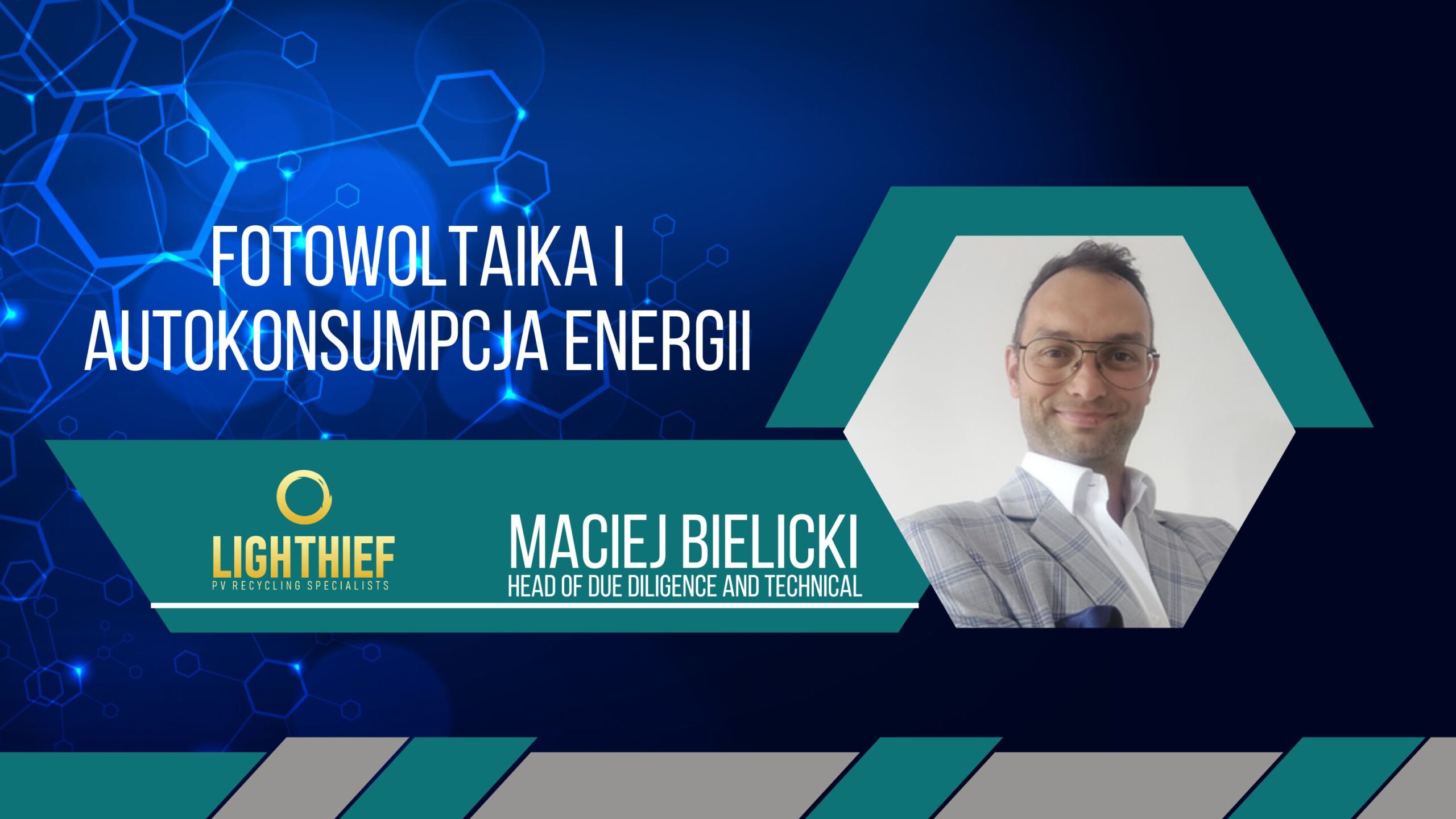Photovoltaics and energy self-consumption
Harness the full potential of photovoltaics: Increase self-consumption of electricity
Photovoltaic installation is an investment that brings tangible financial and environmental benefits. However, in order to realize its full potential, attention must be paid to the issue of self-consumption of electricity.
Understanding the concept of self-consumption
Autoconsumption refers to the amount of electricity produced by a photovoltaic system that is consumed on an ongoing basis in a building or household. The higher the self-consumption, the greater the savings because you don’t have to buy electricity from an outside supplier.
In a typical household, the average self-consumption is only 25-30%. This means that the remaining 70-75% of the energy generated is transferred to the power grid. Although the net-billing system allows this excess to be accounted for, it involves losses of 20-30%.
Factors affecting self-consumption
Many factors play a role in determining the level of photovoltaic energy self-consumption. Here are the most important ones:
Installation size
The power of the photovoltaic system should be matched to the electricity demand of the building. If the installation is oversized, more power will be transferred to the grid, lowering autoconsumption.
Energy consumption profile
If most of the energy is consumed during the day, when solar panels produce the most power, autoconsumption will be higher. Conversely, if the greatest demand occurs in the evening or at night, autoconsumption will be lower.
Intelligent energy management systems
Solutions such as energy storage, smart inverters and load management systems can automatically adjust a building’s energy consumption to match the output from solar panels, increasing self-consumption.
Orientation of photovoltaic panels
South-facing panels produce more energy during the day. While east/west oriented panels generate more power in the morning and evening, which may better suit the energy consumption profile.
Weather conditions
The amount of energy produced by solar panels depends on insolation and weather conditions, which directly affects self-consumption.
Strategies for increasing self-consumption. Photovoltaics and energy self-consumption.
Here are effective ways to maximize photovoltaic energy consumption in your own building:
1. energy storage facilities
Installing energy storage, such as a lithium-ion battery, allows you to store excess energy produced by solar panels and use it during periods when the plant is not generating electricity. This is a key solution for increasing self-consumption.
2. energy consumption planning
Consciously scheduling energy-intensive appliances, such as a cleaning machine, dishwasher, air conditioner or oven, for the hours when solar panels produce the most energy can significantly increase self-consumption.
3. electric heating
By replacing traditional heating systems with electric heating, such as a heat pump or heating films, it is possible to use energy from photovoltaics to heat the building, increasing self-consumption.
4. domestic water heating
The installation of devices such as the Fronius Ohmpilot makes it possible to use surplus energy from photovoltaics to heat domestic water, which increases self-consumption and reduces heating costs.
5. electric vehicle charging
Having an electric car and a charging station allows the use of photovoltaic energy to charge the vehicle’s battery, which increases self-consumption and reduces the cost of operating the car.
6. east-west photovoltaic installations
Arranging solar panels in an east-west orientation can better match energy production with a household’s consumption profile, increasing self-consumption.
7. intelligent energy management systems
The implementation of load management systems that automatically adjust energy consumption according to production from photovoltaics can significantly increase autoconsumption without the need for manual control.
Benefits of increased self-consumption. Photovoltaics and energy self-consumption
Maximizing the autoconsumption of energy from photovoltaics has many benefits:
- Lower electricity bills due to less dependence on an external energy supplier.
- Higher profitability of investment in photovoltaic installation.
- Greater energy independence and resilience to power outages.
- Reduce carbon footprint and promote sustainability.
While there are many ways to increase photovoltaic energy self-consumption, each building and household has unique requirements. Therefore, it is advisable to consult with professional consultants who will help plan and implement optimal solutions tailored to your needs.
Maximizing the self-consumption of photovoltaic energy is the key to making this investment more profitable and achieving greater energy independence. With strategies such as energy storage, smart load management systems, electric heating and electric vehicle charging, you can significantly increase your energy consumption directly from solar panels, lowering your electricity bill and supporting sustainability.
We provide service throughout Poland 7 days a week and our service technicians can reach even the farthest regions of the country.
You can contact Us 7 days a week at Our phone number:
Are you planning to build your photovoltaic farm or looking for an O&M service company?
Do you want to purchase a photovoltaic or wind farm project and need an efficient and professional audit / due diligence?
Are you looking for a photovoltaic panel recycleror cleaning company for photovoltaic installations and farms?
If you are ready to act,
then so are we!
